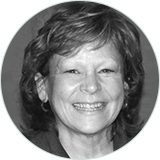
Editor’s Note: Happy 10th Anniversary Michigan Arts Education Instruction and Assessment (MAEIA) project! This is the first in a six part series that will continue throughout 2022 to celebrate the 10 year milestone. We will highlight a variety of individual voices telling their stories of MAEIA participation during the ten years and we will look ahead at the next exciting 10 years.
The MAEIA project was shepherded into being by a handful of dedicated professionals committed to improving the arts education experience for students and teachers in Michigan. We honor their vision and contributions in our first post of the series.
Thanks for being a part of our celebration. ~ Joni Starr
____________________________________________________________________________________________________________________
 “At the beginning the goal was to simply create some manner of assessment that arts teachers could use as a data point to monitor or improve their instruction. Over the years that system has grown into so much more!” offered Andy Middlestead, Director, Office of Educational Assessment & Accountability, Michigan Department of Education (MDE). He added, “In 2011 MDE was appropriated funds to begin fleshing out ‘interim assessments for other content areas.’ At the time we knew we were interested in thinking through what these types of tests would look like for things like art, physical education, music, etc. We connected with the Michigan Assessment Consortium (MAC) and decided that the arts was the first place we wanted to start – thus began MAEIA.”
“At the beginning the goal was to simply create some manner of assessment that arts teachers could use as a data point to monitor or improve their instruction. Over the years that system has grown into so much more!” offered Andy Middlestead, Director, Office of Educational Assessment & Accountability, Michigan Department of Education (MDE). He added, “In 2011 MDE was appropriated funds to begin fleshing out ‘interim assessments for other content areas.’ At the time we knew we were interested in thinking through what these types of tests would look like for things like art, physical education, music, etc. We connected with the Michigan Assessment Consortium (MAC) and decided that the arts was the first place we wanted to start – thus began MAEIA.”
 Vince Dean, former Director, Office of Standards and Assessment for MDE added, “This project was a tremendous opportunity to focus a statewide discussion on arts education and continue work the MDE had been engaged with on formative assessment and assessment literacy with a highly competent, dedicated partner organization.”
Vince Dean, former Director, Office of Standards and Assessment for MDE added, “This project was a tremendous opportunity to focus a statewide discussion on arts education and continue work the MDE had been engaged with on formative assessment and assessment literacy with a highly competent, dedicated partner organization.”
 Kathy Dewsbury-White, President and CEO of the Michigan Assessment Consortium and MAEIA Project Director recalls, “The MAEIA project was a great opportunity for the MAC. MAEIA was our opportunity to take on contract work that permitted us to design and develop performance assessments for the fine arts. Because arts programming varied so much from district-to-district MDE embraced our proposal to support other necessary tools and resources that permitted us to place the assessments in a context that articulated what constituted quality arts programming. The journey ended up yielding not just a robust catalogue of 360 curriculum embedded performance assessments but the full range of supports necessary to articulate and execute arts education in a K-12 program. For a former curriculum director and a person working with colleagues to develop the MAC into a valuable organization – it was a perfect project.”
Kathy Dewsbury-White, President and CEO of the Michigan Assessment Consortium and MAEIA Project Director recalls, “The MAEIA project was a great opportunity for the MAC. MAEIA was our opportunity to take on contract work that permitted us to design and develop performance assessments for the fine arts. Because arts programming varied so much from district-to-district MDE embraced our proposal to support other necessary tools and resources that permitted us to place the assessments in a context that articulated what constituted quality arts programming. The journey ended up yielding not just a robust catalogue of 360 curriculum embedded performance assessments but the full range of supports necessary to articulate and execute arts education in a K-12 program. For a former curriculum director and a person working with colleagues to develop the MAC into a valuable organization – it was a perfect project.”
 For Ed Roeber assessment had been a theme running throughout his career and with ample experience in arts assessment on a national and statewide level, it was the right fit for him to come on board as MAEIA’s Assessment Director. After recent involvement in ELA, mathematics and science assessments Ed said, “What a pleasure it was going to be to work on arts assessment once again.”
For Ed Roeber assessment had been a theme running throughout his career and with ample experience in arts assessment on a national and statewide level, it was the right fit for him to come on board as MAEIA’s Assessment Director. After recent involvement in ELA, mathematics and science assessments Ed said, “What a pleasure it was going to be to work on arts assessment once again.”
 As the goals of MAEIA became more evident it was obvious that staff resources needed to grow. Kathy Humphrey, Media/Website Director and Program Review Tool Coordinator came on board to help manage field testing for the new performance assessments and soon after she became project manager for the creation of a website showcasing the MAEIA performance assessments and other key resources. “I was happy to jump in to MAEIA and contribute my skills to such an important and exciting project for arts education!”
As the goals of MAEIA became more evident it was obvious that staff resources needed to grow. Kathy Humphrey, Media/Website Director and Program Review Tool Coordinator came on board to help manage field testing for the new performance assessments and soon after she became project manager for the creation of a website showcasing the MAEIA performance assessments and other key resources. “I was happy to jump in to MAEIA and contribute my skills to such an important and exciting project for arts education!”
 Cheryl Poole, Editor, Project and Website Support from 2011-2017, was offered the opportunity to contribute to a new and developing project to serve the needs of arts educators. She notes, “Since I was originally a high school visual arts teacher and an arts coordinator in multiple capacities, it only made sense to bring some of my retirement hours to what would eventually become MAEIA. What began as a few hours grew in scope to become the most worthwhile assignment of my professional career; working with an inspiring cadre of leaders in visual arts, dance, music and theater.”
Cheryl Poole, Editor, Project and Website Support from 2011-2017, was offered the opportunity to contribute to a new and developing project to serve the needs of arts educators. She notes, “Since I was originally a high school visual arts teacher and an arts coordinator in multiple capacities, it only made sense to bring some of my retirement hours to what would eventually become MAEIA. What began as a few hours grew in scope to become the most worthwhile assignment of my professional career; working with an inspiring cadre of leaders in visual arts, dance, music and theater.”
 Another well respected professional was invited to join the team, Ana Luisa Cardona, Arts Education Consultant, 2011-2019. Ana had prior experience working with the Michigan Department of Education as an arts education specialist on the curriculum development team. She says, “I became involved because the opportunity to work with a stellar team of respected arts and education teacher leaders to uncover what authentic assessment of student learning in each of the arts looks like was a challenge I couldn’t resist.”
Another well respected professional was invited to join the team, Ana Luisa Cardona, Arts Education Consultant, 2011-2019. Ana had prior experience working with the Michigan Department of Education as an arts education specialist on the curriculum development team. She says, “I became involved because the opportunity to work with a stellar team of respected arts and education teacher leaders to uncover what authentic assessment of student learning in each of the arts looks like was a challenge I couldn’t resist.”
 “I originally chose to join the MAEIA project because, for the first time, in my memory, the work focused on bringing people together to create substantive and meaningful assessments for arts educators to use in their classrooms. Money was going to be spent on arts education in Michigan and I wanted to be a part of the work,” says Barb Michelutti, Professional Development and Media/Web Support Director, 2011-2016. Barb offered her 30 years of experience and knowledge in arts integration to the project and she was excited to see the arts receive “the time and attention they deserved.”
“I originally chose to join the MAEIA project because, for the first time, in my memory, the work focused on bringing people together to create substantive and meaningful assessments for arts educators to use in their classrooms. Money was going to be spent on arts education in Michigan and I wanted to be a part of the work,” says Barb Michelutti, Professional Development and Media/Web Support Director, 2011-2016. Barb offered her 30 years of experience and knowledge in arts integration to the project and she was excited to see the arts receive “the time and attention they deserved.”
The founding team had well aligned outcomes for the work. “We expected the development of a common vernacular around arts education in Michigan that would help refine curriculum expectations, measure student success, and provide richer opportunities for students,” said Vince Dean.
Cheryl Poole says, “I expected MAEIA to convene forward-thinking educators in all the arts to generate performance assessments that could serve all educators to assess student learning in visual arts, dance, music and theater and tangentially inform educators in the effectiveness of their instruction.”
Ana Luisa Cardona added, “I expected that we would work with arts educators to develop a set of model assessments similar to what had been developed some years back at the national level. My expectations were surpassed in every way including model K-12 assessments in four arts disciplines that were available online free of charge along with a complete set of program review tools to support teachers and administrators in implementing high quality arts education programs in their schools.”
As project director, Kathy Dewsbury-White saw the larger picture. “We had project deliverables we set out to meet each year and we turned ourselves inside out to meet them. MAC was intent on doing a great job and creating a model that MDE and MI would be proud of and more importantly that arts teachers would elect to use. Ultimately the second aspiration is what makes MAC unique, we wanted to make an assessment and a supporting resource that a teacher would perceive as valuable for themselves and their students.” Cheryl Poole added, “MAEIA became that and more.”
All of the early innovators were impressed with the process of development and the team of assessment writers and developers. Andy Middlestead recalls the enthusiasm of the group, “I remember attending a content review event in the early years of the project. The arts educators brought the excitement and enthusiasm level to a higher mark than the usual crew we have in student mathematics assessment. It was a treat to see so many truly engaging in the project.”
Kathy Dewsbury-White recollects, ““We were border crossers and translators with and for each other. Ed Roeber was explaining measurement and defining terms as the project management team was adapting item development protocols. We leaned very heavily on the teachers, administrators, and university professors we recruited to lead teams of writers. It was exciting work when we had breakthroughs and saw shared understandings like the Assessment Specifications Document.”
During the initial phases, partners were added to the project and Barb Michelutti recalls working with one in particular. “I think one of my favorite experiences was working with the website design company – KMotion. They were a wonderful and creative group of people and with their support and guidance, I was able to help create the MAEIA website as the Media/Web Support Director. Even now, I love looking at the website and feeling very proud of what we created.”
“The MAEIA development team was the most dedicated and knowledgeable group of professionals that I had the opportunity to work with in my career,” Cheryl Poole reminisces. “Our regular face-to-face meetings sustained me for the many, many hours of independent work that came in between. The weeks in the summers were the most high energy and satisfying because of the experience and intellectual power of the art, dance, music and theater educators. Those weeks were whirlwinds of creating, camaraderie and lots and lots of laughing.”
“The original timeline kept getting extended as more assessment development took place, and new ideas emerged – helping teachers to use the assessments, thinking about the connections of the assessments to quality instruction in the arts, development of a tool to promote collaborative scoring of student work in the arts, considering when COVID struck how to support arts teachers through working together, promoting the use of the formative assessment process in the arts, and throughout, fighting to maintain and grow support for arts education in schools throughout the state. I am happy to be in the tenth year of a three year project.” Ed Roeber says.
Kathy Humphrey sums up the initial work of the MAEIA project well, “The MAEIA project team is a talented group of people who are dedicated to supporting quality arts education in Michigan. A small but mighty team, with excellent leadership, has accomplished amazing things. I’m proud to be part of this effort.”
____________________________________________________________________________________________________________________
Stay tuned for the next installment in the series of Ten Years of MAEIA Voices when we will hear about efforts to expand the surrounding projects and offerings into the MAEIA we know today.
Click here for a Printer friendly version of this article.

Leave a Reply
You must be logged in to post a comment. Don't have an account? Register Here.